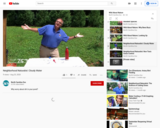
Why worry about dirt in your pond?
- Subject:
- Science
- Material Type:
- Presentation
- Author:
- North Carolina Zoo
- Date Added:
- 09/04/2020

Why worry about dirt in your pond?
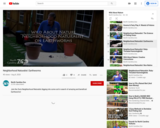
Join the Zoo's Neighborhood Naturalist digging into some soil in search of amazing and beneficial Earthworms!
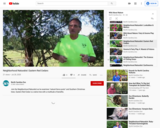
Join the Neighborhood Naturalist as he examines "natural fence posts" and Southern Christmas trees. Eastern Red Cedar is a native tree with a multitude of benefits.
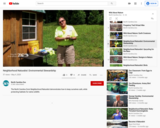
The North Carolina Zoo's Neighborhood Naturalist demonstrates how to keep ourselves safe, while protecting habitats for native wildlife.
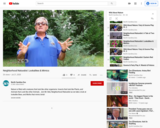
Nature is filled with creatures that look like other organisms: Insects that look like Plants, and Animals that Look like other Animals. Join Mr. Bob, Neighborhood Naturalist as we take a look at lookalike Bees, and Moths that mimic birds!
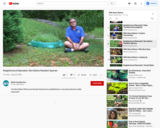
Can Non-Native Plants and Animals that become established in a new place become vitally important?
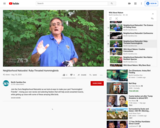
Join the Zoo's Neighborhood Naturalist as we look at ways to make your yard "Hummingbird Friendly"-- mixing your own nectar and selecting feeders that will help avoid unwanted insects, while getting up close with some of these amazing little birds.

This course was created by the Rethink Education Content Development Team. This course is aligned to the NC Standards for 8th Grade Science.

This course was created by the Rethink Education Content Development Team. This course is aligned to the NC Standards for 8th Grade Science.

This course was created by the Rethink Education Content Development Team. This course is aligned to the NC Standards for 8th Grade Science.

VLab: Stream EcologyInvestigate how pollutants affect a stream's temperature, dissolved oxygen, and inhabitants.
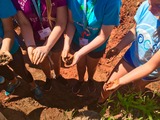
Healthy soil gives us many benefits, including nutritious food. During this video, I interview a local farmer to find out how he takes care of his soil. I also demonstrate an activity where students can try their hand at designing their own soil-friendly yard or green space, either at home or at school.
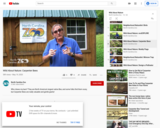
Who chews my barn? They are North America's largest native Bee, and some folks find them scary, but Carpenter Bees are really valuable and gentle giants!
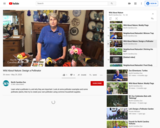
Learn what a pollinator is, and why they are important. Look at some pollinator examples and some pollinator plants, then try to create your own pollinator using common household supplies.
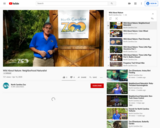
Meet our Neighborhood Naturalist, Bob Langston, at the North Carolina Zoo and learn a little bit about what a it means to be a naturalist and how they help the ecosystem!
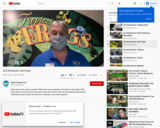
What animal was used in warfare? What dad carries tadpoles on his back to find water? Who knew there was so much to learn about these tiny critters? Hop into this episode with the Zoo EDventures team to learn how the Zoo is helping to save these species.
We have created some helpful clips if you're unable to watch the full video:
K.L.1 Different Poison Dart Frogs (3 min): https://youtu.be/Mpig5Z194rY?t=339
1.L.1 Poison Dart Frog Habitat (1.5 min): https://youtu.be/Mpig5Z194rY?t=580
4.L.1 Poisonous in Nature (3 min): https://youtu.be/Mpig5Z194rY?t=1221
8.L.3 Fungus affects Panamanian Golden Frogs (7 min): https://youtu.be/Mpig5Z194rY?t=1564
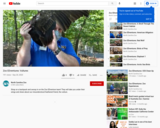
Strap on a backpack and swoop in on the Zoo EDventure team! They will take you under their wings and share about our misunderstood feathered friend, the vulture.
We have created some helpful clips if you're unable to watch the full video:
K.L.1 Turkey Vultures vs. Black Vultures (2 min): https://youtu.be/m8C1bn44wio?t=787
2.L.2 Baby Behavior and Baby Feathers (3 min): https://youtu.be/m8C1bn44wio?t=560
5.L.1 Why vultures have bald heads (2 min): https://youtu.be/m8C1bn44wio?t=615
8.L.3 Vulture Stomach acid kills bad microbes (3 min): https://youtu.be/m8C1bn44wio?t=1962
Conservation Efforts:
Vultures in Africa (6 min): https://youtu.be/m8C1bn44wio?t=1501